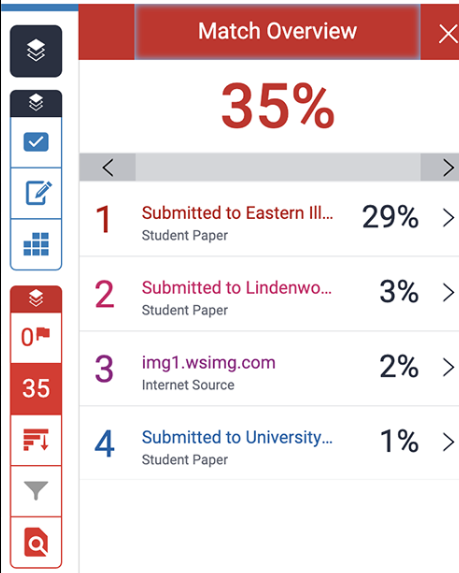As the semester nears its end, students have one more major task to overcome: Finals week.
The dreaded week of exam after exam, projects and papers is almost here, as much as students do not want to believe the truth. Studying for finals a month or even a few weeks in advance can be a difficult task with challenges of busy student schedules, tests to study for before finals, fear of the dreaded week and a lack of motivation. Studying for several finals can be a difficult task. Some would rather skip out on the task in the long term and procrastinate in the short term.
Struggling college students collectively endure finals week every semester, and this fall, Southern Miss students begin their weeklong journey on Dec. 10.
To maintain sanity and a positive well- being, students should focus on staying healthy in times of hectic studying, working and test-taking. Stress can put strain on a person’s health. When a student is overwhelmed by two tests and a presentation in the same day, exercising is the last thing on his or her mind. Being sure to get enough sleep and adequate nutrition before and during finals week can help those grades go up. According to a study, college students who worked out before class improved test scores 17 percent on average.
Senior therapeutic recreation major Ray Moore said he takes care of his body not only during finals week, but throughout the entire semester to maintain his well-being with his academics.
“I realize that I need sleep and that I will do better with sleep,” he said. “I get the studying off my mind and go play tennis or Frisbee.”
Students commonly struggle with time management and prioritizing. Finals week is a crammed week of exams, tests, and even school- sponsored events such as distressing activities and professor-hosted review sessions. Managing time is an essential tactic in lowering stress and avoiding procrastination.
Junior microbiology major Evan Derrick said he prepares for finals typically by himself, organizing study times for each subject.
“I look at stuff in advance, throughout the year looking over my stuff, making sure for each test I write notes and I keep them in a folder, and at the end, I’ll review those notes and go back and possibly hopefully remember all the stuff,” he said.
When a student crams for an exam, anxiety forms, lowering his or her ability to retain information. Allotting periods of time to studying one subject before the other or working on one project at a time is the key to time management.
“As far as prioritizing, it’s all about the date,” Derrick said. “What day is my test? If I have test A on Monday and test B on Tuesday, of course I’m going to spend time on test A first. It’s not about the difficulty of the test; it’s about which one comes first, because they’re equally important. During the study process I do tend to spend a lot of time on what comes first, and then I’ll go and review what’s upcoming.”
He said his finals week consists of late nights and some nights with no sleep at all. “Also lots of overeating because I’m so sad,” Derrick said.
A helpful tip to students in understanding so much material is to ask questions and visit instructors’ office hours. Professors, the Writing Center, the Speaking Center and tutoring services at Southern Miss are in place to help students achieve success in their academic endeavors. And all students endure academic difficulties. Consulting someone for help guides students in achieving their goals on difficult tasks or in challenging courses.
Moore said he asks questions in class or after class if he doesn’t understand, but he also answers questions asked by the professor during a class session.
“I don’t usually reach out to my professors if I’m not struggling,” he said. “A lot of people might have the same questions, but a lot hesitate from asking in class. In A&P [anatomy and physiology] class, it’s a big auditorium of students, so it’s hard to ask questions sometimes.”
Studying means focusing and to focus on material in order to retain information requires the proper study and learning environment. Believe it or not, the location where one studies can affect how one studies and how much is retained. Most people can focus in a quiet place without noise or distractions – the ideal habitat for digging into a book and notes. Where tutors are conveniently hanging out such as in the building of one’s particular department or the library is a sure way to access help whenever needed.
Regardless of when a student studies or how, finals week can be a demanding time, inflicting stress on a majority of students. Take a breath. While procrastination is a common misstep in studying for finals or writing papers, over-studying and overworking can exhaust a student by the time due dates and finals roll around.
“After a while of non-stop studying, you begin to lose focus and the quality of your studying begins to falter,” Joel Delgado from FIU News said.
Taking a break is acceptable and encouraged when students have a load on their shoulders. A small break can lift a tremendous amount of stress off a student’s shoulders and provide energy for efficiency. Naturally, students need to recharge.
Junior biological sciences major Louise Berryhill also studies better by herself and tries to prepare weeks in advance for her finals.
“I try to prepare weeks in advance and review my notes after every class,” she said. “I like to rewrite my notes for some classes, especially ones with detailed lessons and with professors who don’t send powerpoints. It helps. I don’t like stressing out about tests, but we all do. I worry about worrying.”































